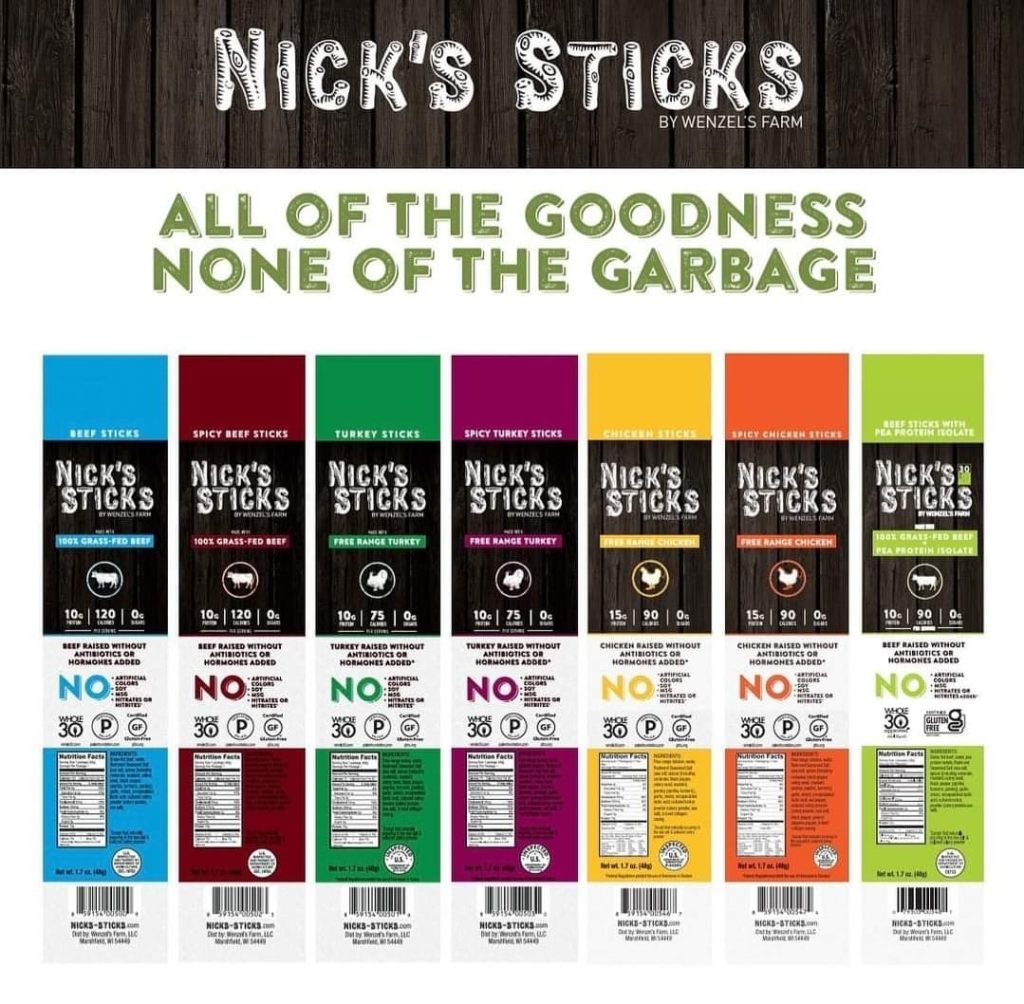Fat-a-phobe
I used to be a fat-a-phobe. Okay, I am a recovering fat-a-phobe. I say recovering because I still have a gut reaction that causes me to think full fat anything will make me… well, fat. It’s been drilled into my head since I was young. Don’t eat fat! Fat free is guilt free, right? Who cares what other crap is in there, just take out the fat so I wont get fat! At least, that is what a lot of mainstream media would like you and me to believe.
In reality, we need fat. Fats provide a concentrated source of energy in the diet and provide the building blocks for cell membranes and a variety of hormones and hormone like substances. Fats as part of a meal they slow down nutrient absorption so that we can go longer without feeling hungry. In addition, they act as carrier for important fat-soluble vitamins A, D, E and K. (Nourishing Traditions, Fallon)
Now, the kind of fat one consumes matters much more than trying to eliminate it entirely. There are “good fats” and “bad fats”
We will start with a controversial one… saturated fats. If you google saturated fats you will most likely get a lot of negative information saying to avoid these fats. However many studies have shown that Saturated fats do not raise cholesterol (contrary to popular belief). Saturated fats have gotten a bad wrap. Yet, these fats are an important source of energy. Diets high in saturated fat actually has been shown to increase HDL, the “good cholesterol, and not affect LDL, the “bad cholesterol” (Journal of American College of Nutrition, 2004). In reality cholesterol does not clog arteries, and is essential for many functions in the body such as hormone regulation and production, immune health, and proper digestion. One study actually shows that lowering cholesterol has no affect on plaque build-up in the arteries (American Journal of Cardiology, 2003).
Other benefits of saturated fat include but are not limited to:
- They play a vital role in the health of our bones. For calcium to be effectively incorporated into the skeletal structure, at least 50 percent of our the dietary fats should be saturated.
- They protect the liver from alcohol and other toxins, such as Tylenol.
- They enhance the immune system.
- They are needed for the propor utilization of fatty acids. (Elongated omega-3 fatty acids are better retained in the tissues when the diet is rich in saturated fats.
The scientific evidence, when honestly evaluated, does not support the assertion that “artery clogging” saturated fat causes heart disease. Actually, evaluation of the fat in artery clog reveals that only about 26 percent is saturated fat. The rest is unsaturated, of which more than half is polyunsaturated. (Nourishing Traditions, Fallon).
The fats that we should avoid often come from things one might think would be healthy… such as vegetables. While vegetables are amazingly healthy, the processed oil we use in the form of corn and soy are harmful to our health. Peanut oil is another one to avoid.
Anything deep fried is usually a food I try to avoid.
There are many superb fats out there that will give us the energy we need.
Here are some good fats you can feel good about eating:
1. Coconut oil: This has to be one of my all time favorites. Although not all coconut oil is created equal. When using coconut oil, try to get organic virgin coconut oil..
2. Animal fat: you can use fat from animals when cooking. I like to get my meat from the farmer’s market so I know where my meat is coming from (I’m able to ask important questions such as “Are your cows 100% grass fed? If they are not grass finished, do you feed them corn or hay?”
Yes, there is a study that show that people who consume more pork, beef, or lamb daily may have a higher risk of colon cancer however, this study fails to include the source of the meat, how it was prepared, or what else they ate (like maybe a side of Super Sized fries?).
Properly raised animals are a wonderful source of healthy fats.
3: Full fat foods: I no longer have to fear full fat milk or yogurts, or fat from nuts (when eaten in reasonable portion sizes) and avocados. They are all good, heart healthy fats.
Foods I once feared but now happily eat:
The whole egg: The majority of an eggs nutrition is in the yolk.
Full fat dairy: While I do avoid dairy for the most part, when I eat it, I get full fat organic. It has more nutrients than low fat or fat free.
Avocados: Okay, I don’t love avocados, but I wish I did. They are full of good fat. I do like to make a yummy chocolate pudding with avocados. This is one of my every other week treats. Avocados are high in monounsaturated fats (about 15 grams per avocado) that when can shift fat gain away from the mid section. The average avocado has 10 grams of fiber, and 20 different essential nutrients.
Nuts: Almonds, walnuts, cashews, pistachios… the list goes on. I try to keep my portions small but I sometimes find myself eating half a jar of home made almond butter.
Beef: I love beef but I was once a “chicken only” kind of girl. I honestly don’t know how I wasn’t anemic my entire teenage and early adult life. I was fearful of what a burger would do to my thighs. But now I eat beef 2-3 nights a week. I also find that when buying grass fed beef, it happens to be leaner. I often don’t even have to drain my ground beef after cooking.
So what about Olive Oil?
Olive Oil has often been spoken about as the best oil ever in different health circles. I do use olive oil in moderation.
Olive Oil contains 75 percent oleic acid. This high percentage makes olive oil ideal for salads and for cooking at moderate temperatures. Extra virgin olive oil is also rich in antioxidants. It is the safest vegetable oil you can use. However, the longer-chain fatty acids found in olive oil are more likely to contribute to the buildup of body fat than the short- and medium-chain fatty acids found in butter and coconut oil. (Nourishing Traditions, Fallon).
So there you have it, this is why I now eat fat (and plenty of it!). There are still many types of fat I avoid but I have been breaking my conventional dieting ideas about fat. It has taken time, but I now incorporate plenty of healthy fats in my daily eating. And guess what, I’m leaner now than when I avoided all fats.
What is your take on good/bad fats? Have you had to break free from the common misconceptions about fat? Are you a former fat-a-phobe? Or do you still struggle with the concept that some fats are great? Feel free to comment below.









Great article!
Also important but not addressed in this post is the importance of phat. Being a recovering phat-a-phobe, I’d be more than happy to write a guest for you.
haha, thanks! I would be happy to have you as a guest writer any time!! 😉 I would hate to miss out on an opportunity for my readers to hear about your fear or “phat” and how you overcame such a life altering obstacle.
Love it as always! Love all kinds of animal fat. We go through so much butter every day, and I render my own beef tallow and duck fat for cooking. 🙂 However, my body doesn’t seem to agree with coconut oil or avocados. Both make me nauseous and bloated. Seems like my body prefers animal fats. 🙂
Isn’t it amazing how different bodies respond differently? I was just hearing from someone saying they did well with the coconut oil ad avocados but couldn’t handle the animal fats and butter. I need to learn how to render my own tallow. It’s on my “nutritious learn to do list”. 🙂
It’s super easy! Just cut off any pink meat from the fat, chop it to small cubes, and then heat in on very low fire for 2-3 hours stirring every 15 minutes or so until everything melts. At the end you’ll have much smaller bits that won’t melt anymore, they’ll just be getting browner and browner. That’s when it’s time to stop. Adding a bit of water at the beginning helps a lot as well because it prevents the fat from sticking and the steam from the water helps kick start the melting process. You have to give it a try. It’s delicious and so good for us!
Thanks!! That does sound super easy. I will have to give it a try.